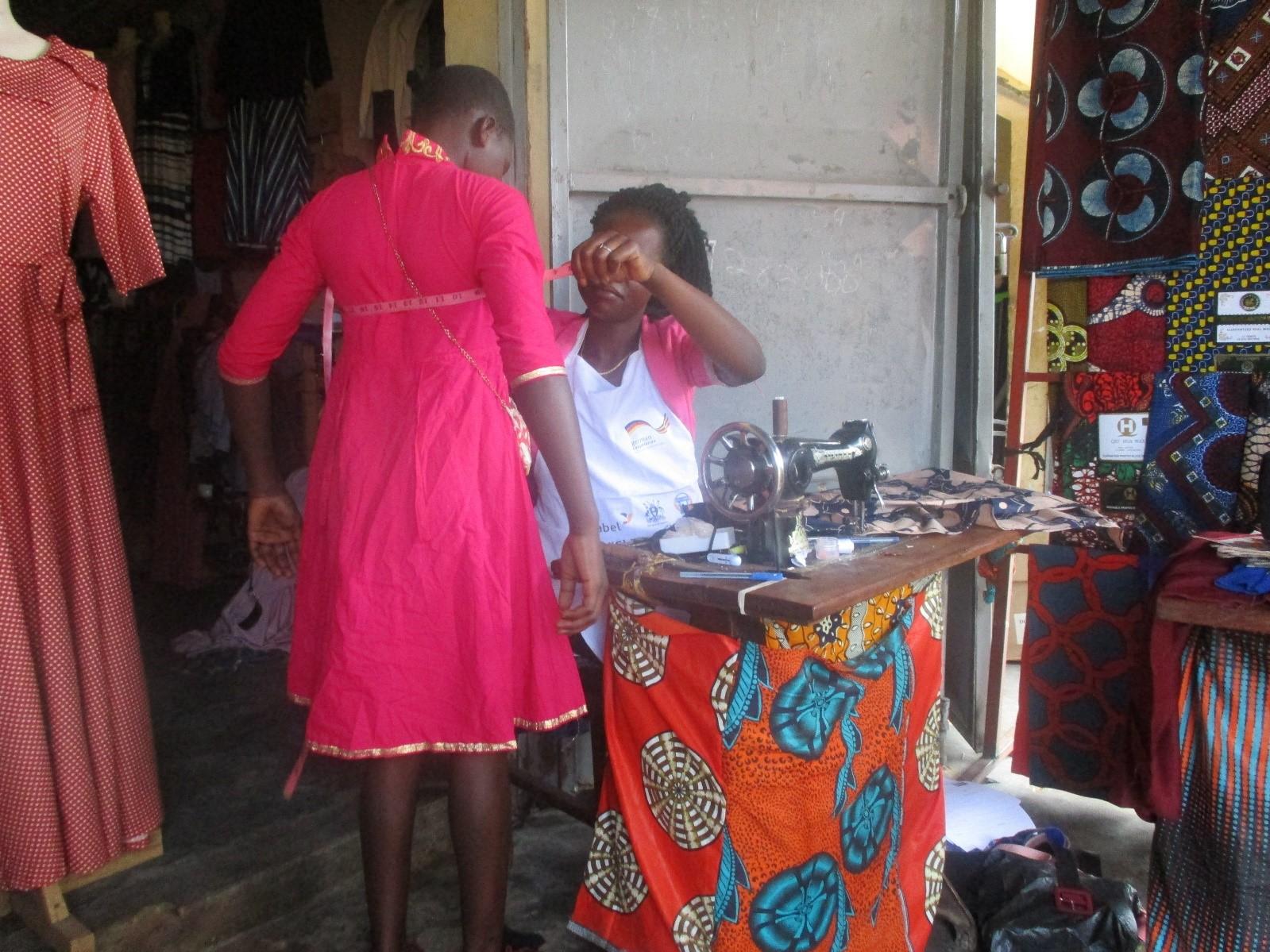Uganda: Read the story on how Rose escaped a cycle of poverty and abuse
When Rose Aserua looks back upon her
short yet eventful life, she praises herself lucky that she was able to escape
a cycle of poverty, humiliation, and abuse.
Like many other girls in her village in
Moyo, Northern Uganda, she was raised by a single mother and married off at a
tender age. Being uneducated and unemployed, she was at the mercy of her
husband, who abused her.
Being a victim of both child marriage
and domestic violence, she one day packed her few belongings and ran to her
uncle. That’s where the village chief told her about the skills training programme
organised by Community Empowerments for Rural Development, with support from
the Belgian and German development agencies.
After having completed a three-month
tailoring course at Moyo Community Polytechnic, Rose was hired by a friend to
help her make clothes at her workshop.
She now earns between 50,000 and 70,000 Ugandan
Shillings a week, enough to take care of herself, support her mother and even
save with a local scheme. Her total savings in the Amababa
Savings and Loan Association amount to 180,000 Shillings.
With the profit, she has been able
to rent her own sewing machine at 15,000 Shillings a month and buy a mobile phone,
which enables her to communicate with her customers and relatives.
Since she started making clothes and also training
others, Rose’s esteem in the community has risen considerably. She commands
respect for her hard work and determination.
“Rose is hardworking and promising,” says Doreen Driciru who organises the local training
courses. “The community and her family
now see her in a new light.”
The
now 25-year-old plans to study fashion and design in the future. She hopes to
be able to buy a modern sewing kit so that she can nicer clothes. Her ultimate
dream is to train her relatives so that they can start a family business.
“I am blessed,” she says. “The training transformed
my life from misery to happiness. People now believe that vocational training
is the best way to address the challenges faced by youth with low education
levels.”
Latest news from this project
No news

